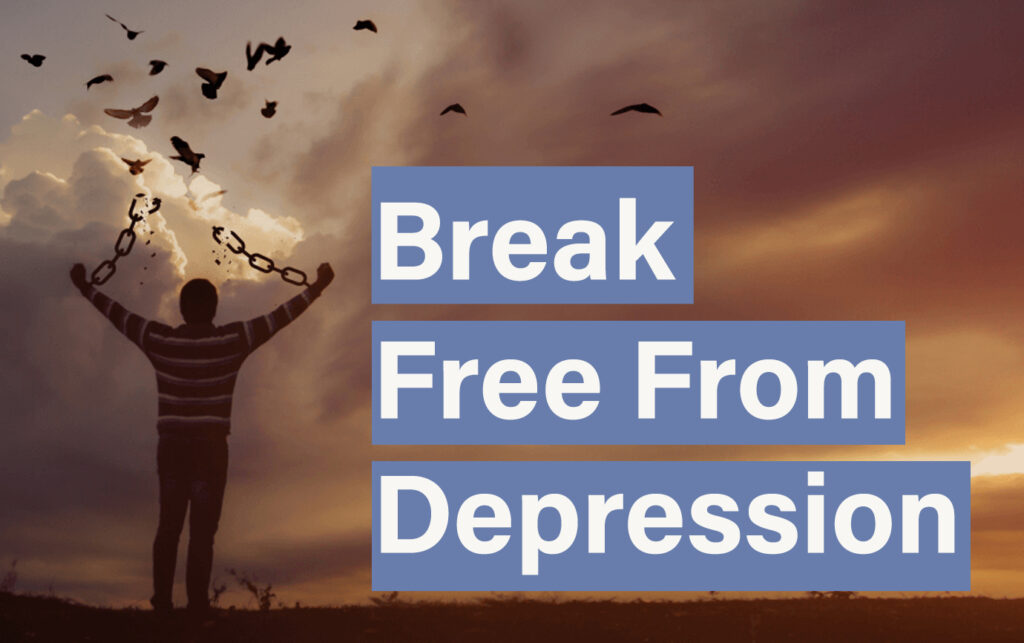Are you tired of hearing about men’s mental health and the barriers they face when it comes to seeking help for depression? Of course you are, because who needs to talk about such trivial things when there are more important matters at hand? Well, if that’s your perspective, hold onto your seat because we’re about to dive deep into the world of men’s mental health and the obstacles they encounter when it comes to seeking help for depression.
Society has long perpetuated the idea that men should be strong, stoic, and never show any signs of vulnerability. As a result, men are often reluctant to reach out for support, fearing judgment and a loss of masculinity. The stigma surrounding mental health further compounds this issue, making men feel ashamed and isolated for even considering seeking help. Add to that a lack of awareness and education about depression, and it’s no wonder that many men suffer in silence.
But it doesn’t have to be this way. By understanding and addressing these barriers, we can create a society that supports men’s mental health and encourages them to seek the help they deserve. So buckle up, because we’re about to shed some light on the barriers that men face when it comes to seeking help for depression, and how we can break down those walls to ensure a brighter future for all.
Key Takeaways
- Society’s idea of strength and stigma surrounding men’s mental health contribute to barriers in seeking help for depression.
- Lack of awareness, education, and understanding about men’s mental health issues and the importance of seeking help create barriers.
- Societal expectations and gender stereotypes can lead to emotional suppression and fear of judgment, preventing men from seeking help.
- Limited support networks and cultural norms can further isolate men and make it difficult for them to reach out for assistance.
Societal Expectations and Gender Stereotypes
Don’t let societal expectations and gender stereotypes keep you from seeking help for your depression, guys. It’s important to recognize the social pressures that can prevent men from reaching out for support. In our society, men are often expected to be strong, stoic, and in control of their emotions. This can create a barrier to seeking help for depression, as it may be seen as a sign of weakness or vulnerability. Emotional suppression is another factor that can contribute to this barrier. Men are often taught to hide their emotions and not show any signs of weakness. This can make it difficult for them to acknowledge and address their own mental health struggles.
However, it’s crucial to understand that seeking help for depression is not a sign of weakness, but rather a courageous step towards healing and self-care. Recognizing and addressing your mental health concerns is a powerful act of self-love and self-preservation. Remember, you are deserving of support and there is no shame in seeking help.
Now, let’s transition into the subsequent section about the stigma surrounding mental health in men, where we will explore another important barrier that needs to be addressed.
Stigma Surrounding Mental Health in Men
Despite society’s expectations, it’s time we break down the walls that prevent men from openly addressing their mental well-being. The stigma surrounding mental health in men is a significant barrier that discourages many from seeking help. To understand the impact of this stigma, consider the following:
- Toxic masculinity: Cultural norms often dictate that men should be strong, self-reliant, and unaffected by emotional struggles. This toxic masculinity discourages men from admitting vulnerability or seeking support, as it goes against the traditional masculine ideals.
- Fear of judgment: Men may fear being judged or perceived as weak if they open up about their mental health. This fear of judgment can be paralyzing and prevent men from seeking the help they need.
- Lack of awareness: Many men may not fully understand the symptoms of depression or other mental health issues, leading them to dismiss their struggles as temporary or insignificant. This lack of awareness further contributes to the stigma surrounding men’s mental health.
- Limited support networks: Men often face a lack of support networks that encourage open discussions about mental health. This can leave them feeling isolated and unsure of where to turn for help.
- Cultural norms: In some cultures, there may be specific expectations placed on men to be strong and unemotional. These cultural norms can intensify the stigma surrounding mental health in men.
By addressing and challenging these barriers, we can create an environment where men feel more comfortable seeking help for their mental well-being. Understanding the influence of traditional masculine ideals and emotional vulnerability is crucial in breaking down these walls and promoting a healthier approach to mental health.
Traditional Masculine Ideals and Emotional Vulnerability
Embrace the power of vulnerability and challenge societal expectations by recognizing the influence of traditional masculine ideals on your emotional well-being. In a society that often values strength and self-reliance, men are expected to suppress their emotions and not show any signs of vulnerability. This concept, known as toxic masculinity, can have detrimental effects on mental health and contribute to the stigma surrounding seeking help for depression.
Toxic masculinity perpetuates the belief that men should always be tough, independent, and in control. This rigid expectation can prevent men from acknowledging their emotional struggles and seeking the necessary support. Research has shown that men who adhere strongly to traditional masculine norms are less likely to seek help for mental health issues, including depression.
The pressure to conform to these ideals can be overwhelming, leading to feelings of shame or weakness when experiencing depression. As a result, many men choose to suffer in silence rather than face potential judgment or rejection. By recognizing the influence of toxic masculinity on your emotional well-being, you can break free from societal expectations and prioritize your mental health.
Transitioning into the subsequent section about lack of awareness and education about depression, it is crucial to understand the impact of societal norms on your perception of mental health.
Lack of Awareness and Education about Depression
Ignorance and limited knowledge hinder your understanding of depression, leaving you with a skewed perception of mental health. This lack of awareness and education about depression is a significant barrier for men seeking help. Here are three reasons why:
- Mental health literacy: Many men lack the necessary knowledge about depression, its symptoms, and available treatment options. This lack of understanding prevents them from recognizing their own symptoms or seeking help when needed. By increasing mental health literacy through education and awareness campaigns, men can gain a better understanding of depression and its impact on their lives.
- Cultural influences: Traditional masculine ideals often discourage men from expressing vulnerability or seeking help for emotional issues. These cultural influences perpetuate the notion that seeking help is a sign of weakness, further deterring men from seeking support for their mental health concerns.
- Limited access to information: The lack of accessible and accurate information about depression can also contribute to the low awareness levels among men. Without proper knowledge, men may not recognize the symptoms of depression or understand that it is a treatable condition.
Improving mental health literacy and addressing cultural influences can help overcome the lack of awareness and education about depression, enabling men to seek the help they need.
Conclusion
In conclusion, men face various barriers when seeking help for depression. Societal expectations and gender stereotypes can make it challenging for men to admit their struggles. The stigma surrounding mental health further discourages men from seeking support. Traditional masculine ideals that discourage emotional vulnerability also play a significant role. Lack of awareness and education about depression exacerbates the problem. These barriers create a maze that men must navigate, making it crucial for society to break down these walls and provide a clear path towards support.
If you would like to see how one of our therapists can help you or someone you know, simply call 613-848-3683 and one of our Client Care Coordinators would be delighted to share the details with you.
Or… Click here to book a call with a Care Coordinator now >>














